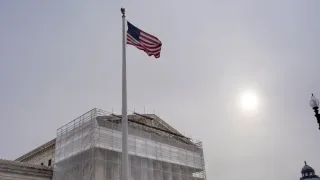December 15, 2024
What the US Supreme Court Will Consider When It Rules on Gender-Affirming Care for Trans Children
READ TIME: 8 MIN.
'Equal Protection of the Laws'
The equal protection clause forbids U.S. states from denying "to any person within its jurisdiction the equal protection of the laws." This provision prevents states from creating unjust differences in how the law is applied to different people.
The most famous equal protection case is likely the Supreme Court's 1954 decision in Brown v. Board of Education. There, the Supreme Court held that racial segregation in schools violated the equal protection clause, declaring, "Segregation of white and colored children in public schools has a detrimental effect upon the colored children. The impact is greater when it has the sanction of the law."
A key question in all equal protection clause cases is whether the law being challenged relies on what is referred to in constitutional law as a "suspect" or "quasi-suspect" classification. This may seem like a technical aspect of the Skrmetti case, but it has profound implications.
Suspect classifications include race, religion, national origin and ancestry. Quasi-suspect classifications include sex and whether one's parents were married at their time of birth.
The basic idea – and reason for the word "suspect" in the name – is that courts are extra suspicious of laws that take these features into account. This is because judges generally think that a person's characteristics such as race, religion and, to a lesser degree, sex should not be relevant to how the law applies to them.
If a court determines that a law is based on a suspect or quasi-suspect classification, then it will assess the law using tests that make it difficult for the law to pass constitutional muster.
But if a court determines that a law is not based on a suspect or quasi-suspect classification, then it will assess the law using a test that is highly deferential to the legislators who passed the law. This test makes it relatively easy for a court to conclude that a law is constitutional.
Thus, it is a crucially important legal issue to determine whether SB1 relies on a suspect or quasi-suspect classification. Tennessee argues that it does not, while the ACLU and the U.S. argue that it does. The court will decide.






